Search Results
Showing results 141 to 160 of 180
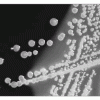
Microbes are Everywhere
Source Institutions
In this four-day activity, learners grow bacteria and/or fungi from a variety of locations and compare the results.
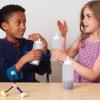
Chemistry Makes Scents
Source Institutions
In "Chemistry Makes Scents," participants use their noses to distinguish between chemicals with very similar structures.
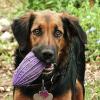
Colorblind Dogs
Source Institutions
This activity (on page 2 of the PDF under SciGirls Activity: Colorblind Dogs) is a full inquiry investigation into dogs' ability (or inability) to see color.
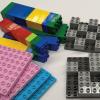
Antibody Builder
Source Institutions
Learners use Duplo bricks to build antibodies with shapes that match model viruses.
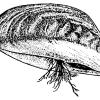
Don't Stop for Hitchhikers
Source Institutions
In this activity, learners role-play the part of lake inhabitants and the aquatic exotics who displace the native species.
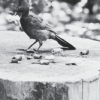
Jay Play
Source Institutions
In this outdoor activity, learners find out the color of food that jays prefer and then try to change the birds' preference by altering the taste of the food with salt.
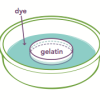
Traveling Nanoparticles Model
Source Institutions
This is an activity (located on page 3 of the PDF under Nanosilver Activity) about diffusion of small molecules across cell membranes.
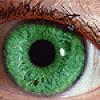
Our Sense of Sight: Eye Anatomy and Function
Source Institutions
In this activity, learners investigate the sense of sight and develop and conduct their own experiments.
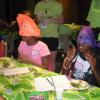
This Bitter Be Good
Source Institutions
In this health and genetics activity, learners determine whether tasting the bitter compound PTC (phenylthiocarbamide) influences which vegetables a person likes.
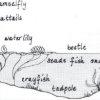
Habitats of the Pond
Source Institutions
In this outdoor activity/field trip, learners locate and study plants and animals in several freshwater pond habitats.
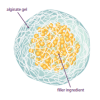
Self-Assembling Dessert Toppings
Source Institutions
This is an activity (located on page 3 of the PDF under Self-Assembly Activity) about self-assembly, the ability of molecules to assemble themselves according to certain rules.
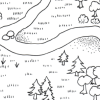
Mapping a Study Site
Source Institutions
In this outdoor activity, learners use a mapping technique to become oriented to the major features of an outdoor site.
Leaves: Extracting Pigments
Source Institutions
In this fun, hands-on autumn activity, learners experiment to discover whether the colored substances in leaves can be separated from the leaves.

Life Size: What's in a microbe?
Source Institutions
In this activity on page 3 of the PDF, learners visualize the relative size and structural differences between microbes that have the potential to cause disease.
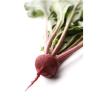
Membrane Permeability with Beets
Source Institutions
In this lab exercise, learners explore diffusion, cell membranes and particle size using beets and three alcohols.
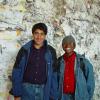
Recycle Your Own Paper!
Source Institutions
In this activity (page 2 of PDF under GPS: Garbology Activity), learners will prepare sheets of homemade recycled paper from several different source pulps.
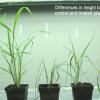
Effect of Environment on Plant Growth
Source Institutions
The purpose of this plant biotechnology activity is to demonstrate the effect of changes in the environment on the growth and fertility of landscape grasses and crop grasses such as wheat and rice.
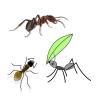
Insect Collection
Source Institutions
Learners use several types of insect sampling and collection equipment to make an insect collection. Learners can collect insects from their schoolyard or yard at home.
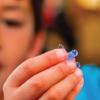
Delivery Capsules
Source Institutions
Learners make self-assembled polymer spheres as a model for the lipid nanoparticles found in COVID-19 mRNA vaccines.
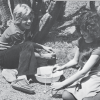
Desert Water Keepers
Source Institutions
In this outdoor, sunny day activity, learners experiment with paper leaf models to discover how some desert plants conserve water.
